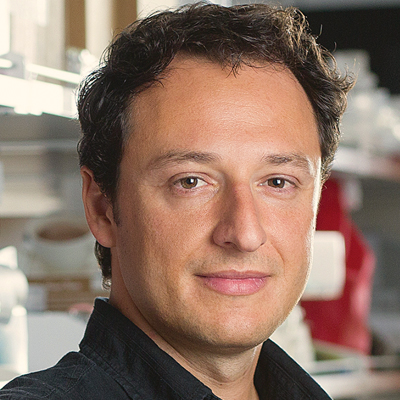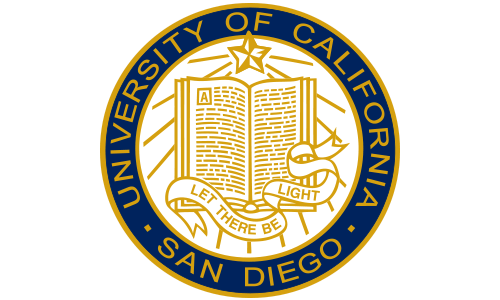Discovering the history behind modern human evolution by growing “mini brains”
Dr. Alysson Muotri, Associate Professor in the Departments of Pediatrics and Cellular & Molecular Medicine at the University of California, San Diego, is focusing his research on solving one of life's greatest mysteries: What is it that makes us uniquely human? Research tells us that one of the most influential characteristics of modern humans is our sophisticated brains, and all of the abilities that its complexity grants us. Our unique social brains are one of the key distinguishing factors between humans and other primates. We are even very different from our closest relatives, the Neanderthals, whose brains were limited in their ability to create technology, art, imagination and overall culture. Dr. Muotri is studying the brain from an evolutionary and developmental perspective, differentiating stem cells to recreate "mini brains" in the controlled setting of a lab.
This work has implications for the generation of human disease models by determining the molecular and cellular mechanisms driving neurological complex disorders, such as autism. It is also creating opportunities for identifying and testing novel therapeutic approaches; the nature of this work reduces the amount of time required for moving new drugs to clinical trials. Gaining a clearer understanding of human brain evolution is crucial for interpreting human genetic variants which lead to disease. Some of the evolutionary properties that make us uniquely human and allow us to live the advanced lifestyle we enjoy are also a root cause for a number of disorders. Our brain grants us far greater processing power than any other species, but a complex brain came with a cost: it increases the opportunity for neurological diseases. Thus, understanding the evolutionary path and the tradeoffs of the modern human brain will likely illuminate the origins of human disease.
Current research projects deal with examining the development of brain tissue in stem cell-derived "mini brains."
-
To understand the fundamental basis of the organization of the social brain, Dr. Muotri is observing the advantages of the human condition in situations where the social aspect is compromised. Using human pluripotent stem cells to recreate the neural developmental stages of autism and other social disorders, Dr. Muotri is modeling diseases in a dish. This allows him to investigate the mechanisms responsible for alterations in neuronal networks. By testing the responses of this tissue to drugs within a dish, he is looking to revert the defects seen in diseased states. If a drug increases the number of synaptic connections in autism, for example, it can be deemed effective and move more quickly into clinical trials. This is opening novel therapeutic avenues while accelerating the translational response to this research.
-
Dr. Muotri is also interested in studying the social brain from an unconventional, evolutionary perspective. Much of the genetic information on Neanderthals is based on the fossil record and DNA samples extracted from remains. When this genetic information is compared to the genome of humans, there are changes present that are not seen in modern humans. Using cutting-edge genome-editing technologies, Dr. Muotri is re-creating genetic variants that were negatively selected in extinct humans, such as the Neanderthals, in neurons derived from stem cells. He is looking at what properties were likely responsible for limiting the Neanderthal's social, cultural, and technological development and contributed to their extinction. By doing so, Dr. Muotri's lab may generate innovative hypotheses about the human social brain with direct impact on human mental health. This has never been dreamed possible in the past.
- We have all the genes represented within the human genome, yet they are contained in only 1% of all human DNA. For this reason science has dealt considerably with this 1%, with the other 99% remaining relatively unknown, naively referred to as "junk" DNA in the past. However, Dr. Muotri has identified discrete genetic elements in our genome that can move from one place to another, affecting the behavior of individual cells. This is evidence to believe these “jumping genes” are responsible for the individuality of each human brain, while also potentially being implicated in several neuro- and psychiatric disorders. This may help to explain why we are all different in thought and behavior, even when raised in the same environment.
Bio
A motivational factor for pursuing a career in academia was the freedom to pursue crazy, seemingly-outlandish ideas, and guide the direction of his research. He was riddled with big questions like “What make us humans?” and, “What were the selective pressures that encouraged our social nature?” In response, he choose an evolutionary perspective, and decided to investigate the early stages of human brain development. One way to understand the fundamental questions of the brain is to observe the conditions where it fails, such as in autism (hypo-social) and Williams syndrome (hyper-social), which naturally led to an investigation using stem cell biology. Dr. Muotri has thus taken advantage of stem cell technology to recreate “mini brains” of these neurological conditions modeled in a dish. This allows him to understand what makes them abnormal and to manipulate these cells to revert the traces of these neurological conditions. Dr. Muotri’s lab is composed of around 20 investigators from around the world. These are young, unselfish, and highly motivated people who believe they can make a difference in the world.
A significant change occurred in Dr. Muotri’s life five years ago when he became the stepfather to a boy with severe autism. There is no cure for autism, and children with this condition are dependent and vulnerable. Dr. Muotri is most impressed with their capacity to experience the surrounding environment. A christmas tree, adorned with all its lights, can be more impressive than a collision of stars. Autism is a lifelong developmental disability, individuals with the disease will struggle with increasing degrees of the disorder, yet Dr. Muotri soon realized that his research has tremendous translational potential. By treating "autistic neurons" in the lab with candidate drugs, he had one eureka moment. He was able to show that the defects in communication between the autistic neurons (synapses) could be reverted, serving as strong evidence suggesting that the condition may be treatable, if not, curable. “Hope lies in dreams, in imagination, and in the courage of those who dare to make dreams into a reality” - this quote from Jonas Salk exemplify Dr. Muotri’s feelings when he wakes up everyday to go to his lab. “I am very optimistic and motivated to help people suffering from neurological disorder. I can’t stop thinking about this possibility. The impossible is not an option for me.” says Dr. Muotri.
In the News
Publications
Videos
Awards
Surugadai Award (Tokyo University, Japan), 2014
UCSD/FMP Outstanding Mentor Award, 2014
NARSAD Independent Investigator Award, 2014
EUREKA NIMH Award, 2013
Winner of Pride Autism Brazil, 2013
Honor Medal from BlueWorld Autism, 2013
Kavli Frontiers of Science Fellow, 2013
PopTech Science and Public Leadership Fellow, 2013
“Stigma Buster”, National Alliance on Mental Illness (NAMI), 2010
The 100 most influential people in Brazil, Época, SP, Brazil, 2010
NIH Director’s New Innovator Award, 2009
Emerald Foundation Young Investigator Award, 2009
Patents
U.S. Patent No. WO2011140397 A3: "Stem cell defined media for xeno-free and feeder free conditions and uses thereof".
Inventors: Reis Castilho Leda Dos, Paulo Andre Nobrega Marinho, Alysson Muotri, Stevens Kastrup Rehen.
U.S. Patent No. WO2010111409A3: "Pluripotent stem cells".
Inventors: Alysson R. Muotri, Fred H. Gage, Maria C.N. Marchetto.
U.S. Patent No. WO2011017404A3: "Retroelements and mental disorders and methods of measuring l1 retrotransposition".
Inventors: Fred H. Gage, Nicole Coufal, Mike Mcconnell, Alysson Muotri, Maria C.N. Marchetto
U.S. Patent No. WO2011079307A3: "Methods and compositions for treating neurological disorders".
Inventors: Maria C. N. Marchetto, Fred H. Gage, Alysson R. Muotri
U.S. Patent No. WO2013163455: "A drug screening platform for rett syndrome."
Inventors: Alysson Renato MUOTRI, Cassiano CARROMEU, Allan ACAB


